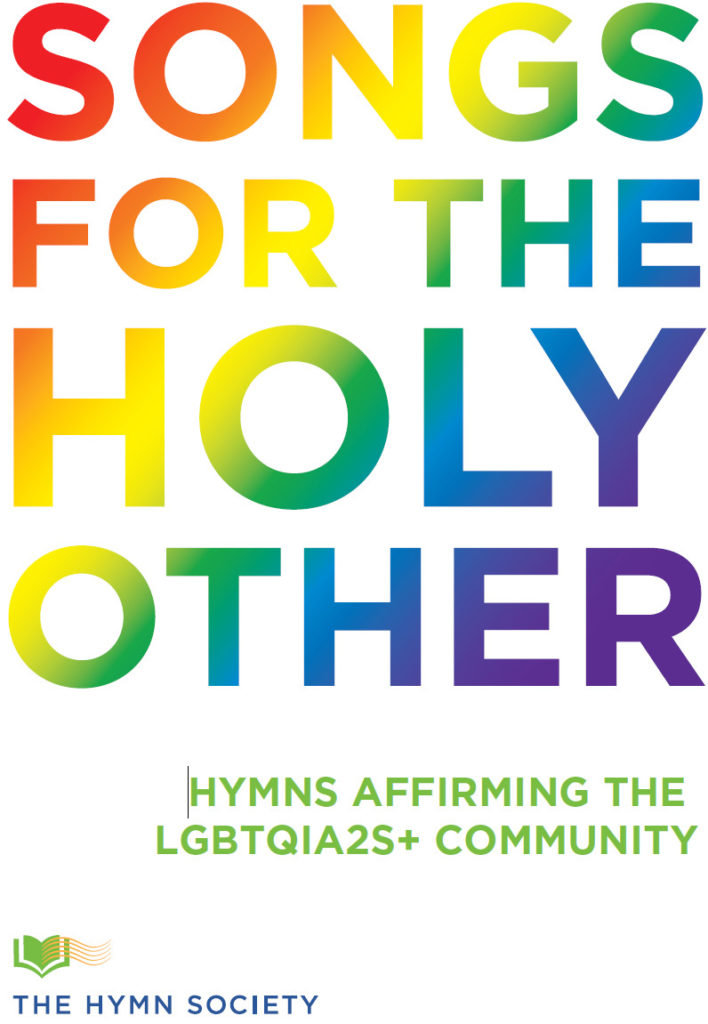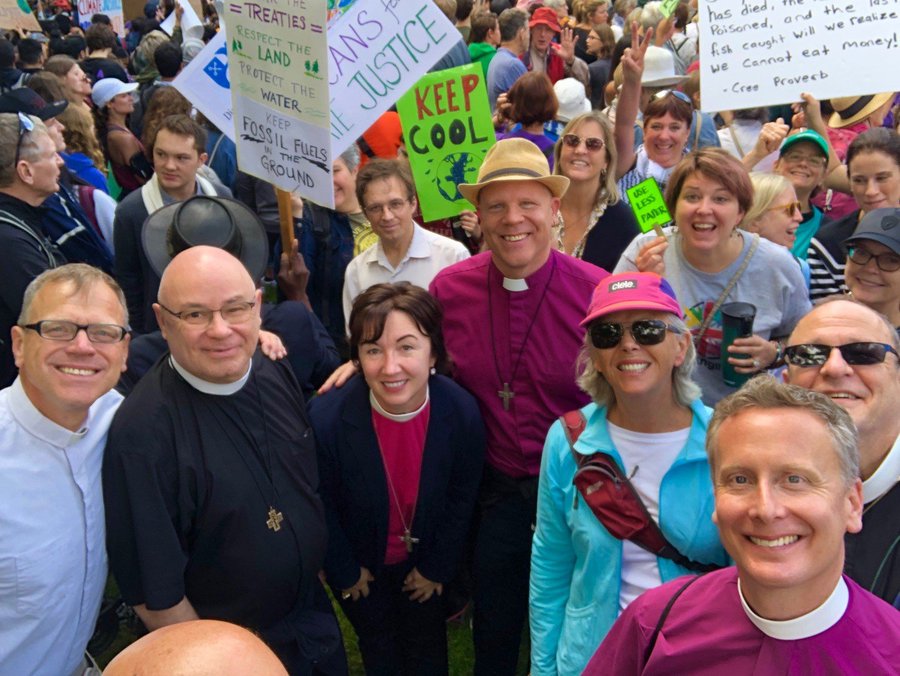Eat the babies.
Eco-feminism goes full Soylent Green:

Eat the babies.
Eco-feminism goes full Soylent Green:
Up until today, the last official statistics from the Anglican Church of Canada that I had seen were published 2001.
A new report has just been presented to the House of Bishops with statistics gathered from 2017.
A few highlights:
The entire report can be read here and the raw data is here.
Statistics report for House of Bishops
Rev Dr. Neil Elliot PhD
0) Précis
In 2018 General Synod was able to collect a complete and mostly reliable set of data for from the dioceses for the first time since 2001. The data is for the year 2017 and it shows that the decline observed in earlier data has continued. Projections from our data indicate that there will be no members, attenders or givers in the Anglican Church of Canada by approximately 2040.
This report presents the headline data and includes diocesan decline data based on the statistics from 2001 and 2017. The report goes on to look briefly at a few of the implications of the data. The report then suggests further work which needs to be done. The work identified here can be done without substantial additional resources. If there is hope in these numbers, it is the hope that some data gathering and analysis in the next few years will enable us to plan for the future and not react to it. Through paying attention to these statistics we may discern God’s call to our beloved church in these challenging times. We believe that this could be a critical part of the work of reviewing of the church’s mission and ministry which the Primate has identified.
1) Background – Statistical projections of ACC membership previous to the 2017 data
There have been previous reports to the House of Bishops which have been identified the extent of our decline, for example the McKerracher report in 2006. While McKerracher predicted the last Anglican would leave in 2061, the current evidence projects that the church will run out of members in around 2040. There is no sign of any stabilisation in our numbers; if anything the decline is increasing. Some had hoped that our decline had bottomed out, or that programs had been effective in reversing the trends. This is now demonstrably not the case. The decline will not be a surprise to many congregations who see this happening week by week, but what the data confirms is that this decline is happening consistently across the country from BC to Newfoundland. International comparisons suggest that the decline in the Anglican Church of Canada is faster than in any other Anglican church, although the 2018 data from the Episcopal church shows an even greater rate of decline on attendance than ours.
There are two main sources of data which show us the past trajectory:
- i) Historical ACC statistics from 1961-2001
1962-4 were apogee of Anglican Church of Canada membership
Membership Decline 1961-2001 = 50% in 40 years
BUT if you compare with overall Canadian population, it’s more alarming!
Membership 1961 = 1,358,459 members / 18 million Canadians = 7% of Canadians
2001 = 641,845 members / 31 million Canadians = 2% of Canadians
(2017 = 357,123 members /35 million Canadians = 1% of Canadians)
- ii) Circulation data of Anglican Journal give figures for more recent decline. AJ circulation statistics are available for diocesan and parish levels. They have been collected through a consistent methodology of parochial data collection with the intention of distributing the diocesan newspapers. The overall numbers are as follows:
June 1991 – 273,000 subscriber households
June 2015 – 135,500 subscriber households
Decline 1991-2015 = 50% in 25 years
Both i) and ii) project that we will run out of members in around 2040.
The mission of the The Hymn Society in the United States and Canada “is to encourage, promote, and enliven congregational singing.”
Not content to remain in an obscure, irrelevant corner of unambiguous heterosexuality, the society has produced a volume containing hymns “affirming the LGBTQIA2S+ Community”.
If you choose to download it, you will find such timeless titles as: “Queerly Beloved”, “Quirky Queer and Wonderful”, “We Are a Rainbow”, “Who Is the Alien” and, my favourite, “God of Queer Trangressive Spaces” in which you will find the gem: “God’s own deviance is Jesus, born of virgin, Word made flesh”.
I don’t know how we’ve managed to do without this for so long.

From here:
Queer hymn collection offers ‘much-needed’ resource for LGBTQ+ Anglicans and allies
On July 16, three days after the vote at General Synod, the Hymn Society in the United States and Canada released a new hymn collection, Songs for the Holy Other: Hymns Affirming the LGBTQIA2S+ Community. Produced by a volunteer committee from the Hymn Society, an ecumenical non-profit association that seeks to promote congregational singing, Songs for the Holy Other includes almost 50 “queer hymns” by and for individuals who identify with the LGBTQ+ community and their allies.
At its latest synod, the Diocese of Eastern Newfoundland and Labrador has voted to marry same-sex couples or, as the article below would have it “has voted in favor of marriage equality.”
The Anglican Diocese of Eastern Newfoundland and Labrador has voted in favor of marriage equality.
Last July, the General Synod of the Anglican Church of Canada voted against marriage equality within the Anglican marriage canon. However, the motion can be voted on at the provincial level as well.
The vote happened during NL Synod 2019 at the Sheraton Hotel in St. John’s earlier today.
In total 88 per cent of Anglican delegates in attendance voted in favor of affirming marriage equality.
127 votes were cast, with 112 people in favor and 15 against.
Reverend Dr. Geoffrey Peddle, Bishop of the Diocese of Eastern Newfoundland & Labrador, says that in voting for marriage equality they have made the church bigger and inclusive for everyone.
He says the Diocese has made it very clear that this is who they are now and how they want to move forward.
At least Peddle is clear that “this is who they now are”. They are not the Bride of Christ, not the Body of Christ, not the ecclesia – a called out assembly, not members of the church universal. They are a group of people who marry same-sex couples: this is who they are now.
Here is an updated list of dioceses that will marry same-sex couples:
Diocese of Eastern Newfoundland and Labrador
Diocese of Western Newfoundland
Diocese of New Westminster
Diocese of Toronto
Diocese of Niagara
Diocese of Montreal
Diocese of Ottawa
Diocese of Nova Scotia and Prince Edward Island
Diocese of Rupert’s Land
Diocese of Kootenay
Diocese of Edmonton
Diocese of B.C.
Diocese of Huron
Here are some Anglican Church of Canada climate strikes.
Diocese of Niagara:

Diocese of Toronto – bishops galore:
 I may be wrong, but it seems to me that this was just a photo op for bishops to show off their new dentures.
I may be wrong, but it seems to me that this was just a photo op for bishops to show off their new dentures.
Any resemblance to King Canute is purely accidental.
That means she is throwing away her iPhone which is made in China, the most profusive polluter on the planet.
Just joking, that would be going too far.
From here:
Although the climate crisis is not news, nor our lack of a speedy and effective response, the rising voices of our young people demanding that we take action on the most pressing issue of our time is striking. I cannot help but respond to the urgency that is being expressed in the climate strikes, inspired by Greta Thunberg, happening around the world this week, including here in our own diocese.
[…]
The Anglican Church of Canada recognizes that there is a climate emergency and we are called to do more to live up to our responsibility as the protectors and of God’s earth.
The Anglican Church of Canada is looking for a “female identified or non-binary” individual to take part in a UN Commission on the status of women. That means men who, in defiance of their genetic underpinnings, claim to be women can apply. They may even be given preferential treatment.
Just when you think the Anglican Church of Canada cannot become more daft – it does just that.
From here:
Delegate to the United Nations Commission on the Status of Women – Expression of Interest
The Anglican Church of Canada has been asked to nominate one young woman (female identified or non-binary), age 18-30 years old to take part in the Anglican Communion delegation to the sixty-fourth session of the United Nations Commission on the Status of Women in New York City, March 9th-20th, 2020.The main focus of UNCSW64 will be on the review of the implementation of the Beijing Declaration and Platform for Action to assess current challenges that affect the implementation of the Platform for Action and the achievement of gender equality and the empowerment of women.
I was a teenager in the ‘60’s when Bob Dylan decided that the times were changing. I believed him. I thought my generation was going to make everything different. I suppose I was right to some extent: things are worse now.
Bob Dylan put it this way:
Come mothers and fathers throughout the land
And don’t criticize what you can’t understand
Your sons and your daughters are beyond your commandYour old road is rapidly aging
Bishop Susan Bell, having fallen under the spell of Greta Thunburg, says much the same thing. The Bishop is old enough to know better and, unlike, I suspect, Bob Dylan, believes the tripe she is peddling.

Here is the earnest Greta giving an impassioned – nay, hysterical – theatrical diatribe demonstrating the veracity of Ecclesiastes 1:9:
What has been is what will be, and what has been done is what will be done, and there is nothing new under the sun. Is there a thing of which it is said, “See, this is new”? It has been already in the ages before us.

St. Nics in Durham, UK is going on a climate strike apparently. For a church, I’m not sure what that entails but perhaps the vicar will stop preaching sermons, so it won’t be an entirely bad thing.
It’s also rebelling against impending extinction, which is odd for a church since, if humanity is about to become extinct, the eschaton and Jesus’ return must be upon us, an event which should be the cause of rejoicing.
On the other hand, St. Nics having lost all sense of the transcendent may, in a fit of temporal desperation, just be jumping on the fashionable Thunberg bandwagon.
To become a practitioner, look no further than to emulate the high bar set by Justin Welby, a master of eye-catching diversionary irrelevance.
All the right ingredients are in his recent India performance:
Lay on your face in a public venue where all can see. Cameras should be present. And the press.
Apologise for something that happened 100 years ago and had nothing to do with the organisation you are affiliated with but is a part of your country’s colonial past. The contrition will echo with righteous resonance in the empty skulls of the Woken everywhere.
If done with sufficient flair, this will divert attention away from the practitioner’s own failings which, although they may be as numerous as the stars in the Eye of Sauron Nebula, will be forgotten in the spectacle of Ecclesiastical Theatre.
Make sure you imply a connection with Christianity, especially if there isn’t one. You can’t go wrong: everyone hates Christianity. Especially clergy.
From here:
The archbishop of Canterbury has apologised “in the name of Christ” for the 1919 massacre at Amritsar in India, when hundreds of people were shot dead by British forces.
Prostrating himself at the memorial to the Jallianwala Bagh killings, Justin Welby said: “The souls of those who were killed or wounded, of the bereaved, cry out to us from these stones and warn us about power and the misuse of power.
“I cannot speak for the British government … but I can speak in the name of Christ and say this is a place of both sin and redemption, because you have remembered what they have done and their names will live, their memory will live before God. And I am so ashamed and sorry for the impact of this crime committed here.”
Hindus, Christians, Muslims and Sikhs were killed in April 1919 when they gathered in Amritsar, in Punjab, then part of British India. They were protesting peacefully after earlier riots over the arrest of pro-independence leaders.